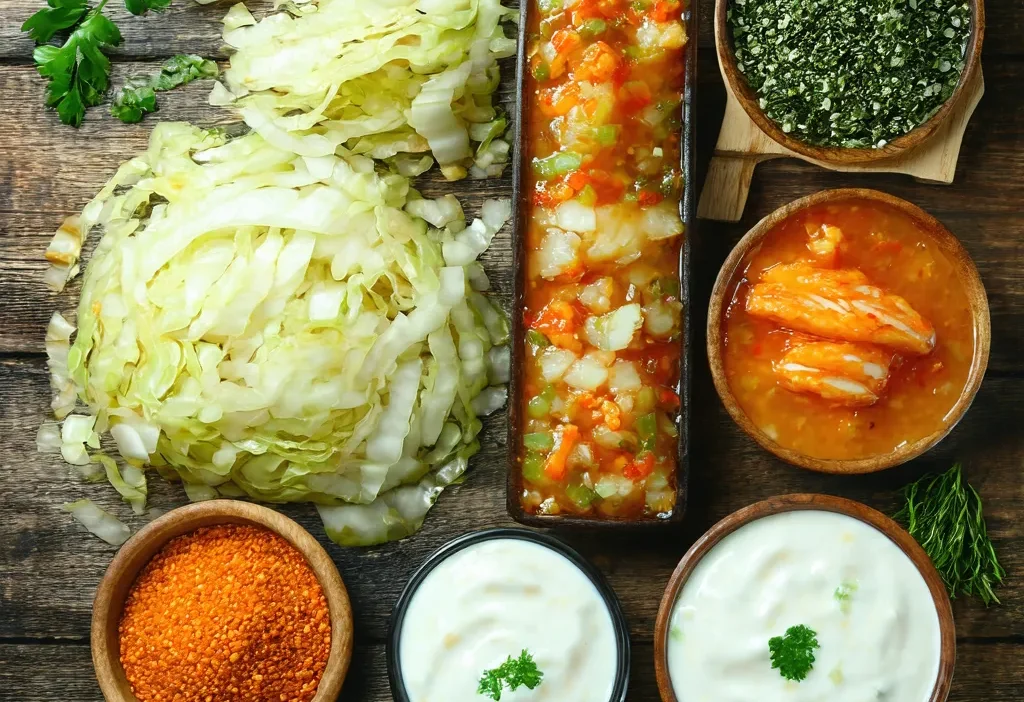Introduction to Fermented Foods
Fermented foods have been a cornerstone of human diets for centuries, offering not just unique flavors but also remarkable health benefits. From tangy sauerkraut to spicy kimchi, these foods are teeming with beneficial bacteria that can work wonders for your gut and overall well-being. In this blog post, we’ll delve into the fascinating world of fermented foods, exploring their health benefits, how they taste, and how you can easily incorporate them into your diet.
The Health Benefits of Fermented Foods
1. **Improved Digestion**
Fermented foods are rich in probiotics, which are beneficial bacteria that help maintain a healthy gut microbiome. A balanced gut flora can improve digestion, reduce bloating, and enhance nutrient absorption.
2. **Boosted Immune System
Approximately 70% of your immune system resides in your gut. By consuming fermented foods, you’re feeding the good bacteria that help strengthen your immune response and protect against harmful pathogens.
3. **Enhanced Nutrient Absorption
The fermentation process breaks down anti-nutrients like phytic acid, making essential minerals such as iron, zinc, and magnesium more bioavailable for your body to absorb.
Fermented Foods You Should Try
- Sauerkraut: A traditional German fermented cabbage dish that’s rich in vitamins C and K, as well as probiotics. It’s a great addition to sandwiches or salads.
- Kimchi: A spicy Korean staple made from fermented napa cabbage. Packed with antioxidants and gut-friendly bacteria, it’s perfect as a side dish or topping for rice bowls.
- Kefir: A creamy, tart milk drink that’s loaded with probiotics. It’s an excellent dairy-free alternative to yogurt and can be enjoyed on its own or added to smoothies.
- Yogurt: While not all yogurts are created equal, those labeled as ‘live cultures’ contain beneficial bacteria that promote gut health.
- Tempeh: A fermented soybean product with a nutty flavor and firm texture. It’s a great protein source for vegetarians and can be used in stir-fries or sandwiches.
- Miso: A traditional Japanese paste made from fermented soybeans, rice, or barley. Miso adds umami flavor to soups, sauces, and dressings.
- Pickles: Fermented cucumbers that are crunchy and tangy. They’re a great low-calorie snack and can be added to salads for a refreshing crunch.
- Kombucha: A fizzy, slightly sweetened fermented tea drink rich in probiotics. It’s available in various flavors and makes a healthier alternative to sugary sodas.
How Fermented Foods Taste
Fermented foods have a distinct tangy or sour flavor due to the lactic acid produced during fermentation. This tanginess can add a refreshing twist to meals and help balance out rich or heavy dishes. While some may find the taste acquired, many people grow to love the unique flavors of fermented foods.
Incorporating Fermented Foods into Your Diet
1. **Start Small
If you’re new to fermented foods, begin with small portions to let your digestive system adjust. Over time, gradually increase the amount.
2. Add Them to Meals
Incorporate sauerkraut into sandwiches, mix kimchi into rice bowls, or use tempeh as a protein source in stir-fries. The possibilities are endless!
3. **Drink Kombucha
Replace sugary beverages with a glass of kombucha for a probiotic-rich and refreshing drink.
A Simple Fermented Food Recipe
DIY Sauerkraut
- Ingredients:
– 1 head of green cabbage
– 3 tablespoons of sea salt
– Optional: Carrots, radishes, or apples for extra flavor - Instructions:
1. Shred the cabbage and any optional vegetables.
2. Mix the shredded vegetables with sea salt in a large bowl.
3. Transfer the mixture into a jar, pressing down firmly to release juices.
4. Cover the jar with a lid or cheesecloth and let it sit at room temperature for about 5-7 days.
5. After fermentation, refrigerate to slow down the process.
Conclusion
Incorporating fermented foods into your diet is a simple yet powerful way to support your gut health and overall well-being. With so many options available, there’s something for everyone to enjoy. So why not give them a try? Your gut will thank you!
Remember, a healthy gut equals a healthy body! 🌱





